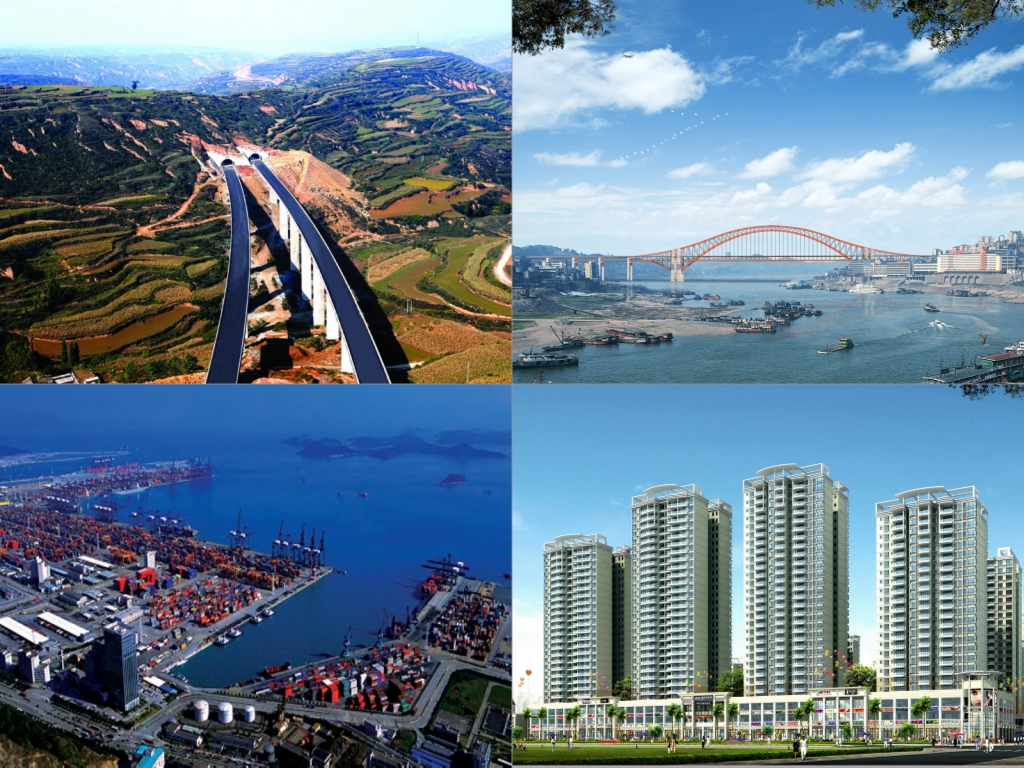
For a first time visitor to Ethiopia, it is hard not to miss the construction boom all across the country.
Indeed many expatriates compare it with China's own construction boom of the 1980s and 1990s which eventually saw the Asian country become the world's second largest economy and the largest trading partner to many nations.
One such sector witnessing construction boom are industrial parks being built mostly by Chinese companies with a view to boost Ethiopia's exports in fields such as textile, leather and agro-industry.
Frehiwot Sisay, Office Manager at China Communications Construction Company (CCCC) is a first hand witness to the symbiotic relationship between Ethiopia and China.
Sisay, a graduate with civil engineering from South China University of Technology, says her decision to join CCCC partly was as a result of the modern buildings and infrastructure she saw as a student back in China.
"CCCC's good reputation in Ethiopia in the construction of roads and bridges also factored in my employment decision," she says, adding that she believes Ethiopians should learn from the hard work ethics and development experience of China if the country is to develop fast.
Sisay was speaking as she was inspecting the construction progress of Arerti Industrial Park 130 km east of Addis Ababa, the Ethiopian capital. The project is one of several flagship projects of CCCC in Ethiopia.
Arerti is one of 17 industrial parks the Ethiopian government has envisaged constructing in its ambitious Growth and Transformation Plan II (2015-2020) to boost the country's fledgling industrial base.
Sisay's belief is echoed by Abebe Aynete, senior researcher at the Ethiopian Foreign Relations Strategic Studies (EFRSS), a local think thank. He says Ethiopia's policy of mutual benefit and promoting peace and stability to have sustainable economic development is something that echoes China's lines.
"Both countries approach issues from national interest instead of ideological inclinations and favor multi-polar approach in their foreign policy," he says.
No one left behind
While the likes of Sisay are high skilled labor with tertiary education experience, Chinese firms' willingness to invest in low technology and labor intensive industries means the opportunities are spread out.
Woody Lau, Business Manager at CCCC Arerti Industrial Park PLC says the completion of the first phase of Arerti would see about 300 people being employed, and a further expansion of the labor force is still to be expected in the second phase.
One such beneficiary is Aboret Alemu, a former soldier who was mentored by a Chinese carpenter with vital skills that has eventually allowed him to become a site manager at Arerti industrial park.
"I miss my Chinese mentor, he's the father of my profession, but now he's living in China, a good guy with a good work culture typical of Chinese people I've met who are good hard workers." He added.
Already the company has made itself a name in Ethiopia by completing the construction of the country's first toll road, the Adddis-Adama toll road which was inaugurated in March 2014.
It's also involved in an electrified rail project in the mountainous northern Ethiopia.
Ethiopians rubbish colonization claim against China
With the ever growing presence of Chinese expatriates, restaurants, projects and even educational institutions in Ethiopia, critics mainly westerners are accusing it of "creeping colonization" or "neo-colonialism".
With Ethiopia being the seat of the African Union, the United Nations Economic Commission of Africa and dozens of other diplomatic missions, the accusations carry particular weight for Africa.
However, this is an accusation Aynete doesn't buy pointing out Ethiopia doesn't fit the natural resource country being exploited by powerful foreign countries.
"Ethiopia is an independent country that has its own historical development and external engagement which has refused even to liberalize to foreign market its banking and telecom sector," he explains.
"Furthermore as an agricultural economy transitioning to an industrial one, it needs Chinese investment in infrastructure which western countries are until recently absent from," Aynete says, adding that that Beijing's consensus of no attachment of political strings has also attracted Ethiopia.
He further believes that China can help in one area where Ethiopia has been deficient until present times.
"Ethiopia is dependent on rain-fed agriculture vulnerable to climate change shocks. China with its experience of feeding its vast population can help meet that gap," says Aynete.
Sisay also dismisses the colonization claim pointing out cooperation with China brings advantages to both sides.
"China has the money and technological expertise. Ethiopia has material and labor resource. The more Chinese firms invest, the more Ethiopia develops hard work and matching experience," Sisay says.
There's also another reason why Sisay rubbishes the "colonization" claim.
"Despite I being the only foreigner in the class back in China some years ago, I had supportive friends who used to play games, eat together and invite each other for holidays," she says, adding that as a mark of love, her Chinese friends even gave her a Chinese name, Xisai.
"Both the Chinese and western governments can pursue good relation with Ethiopian government as long as the country is peaceful and stable which is helpful for their national interest," says Aynete.
Source: Xinhua